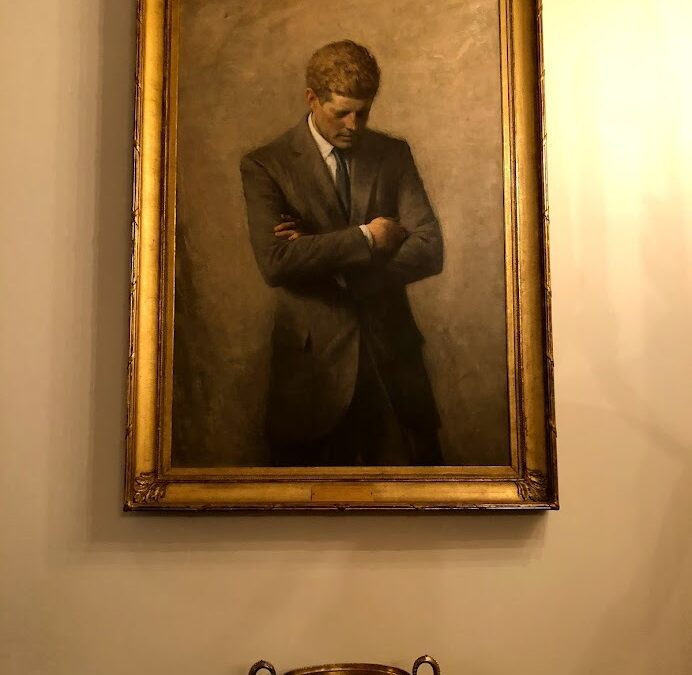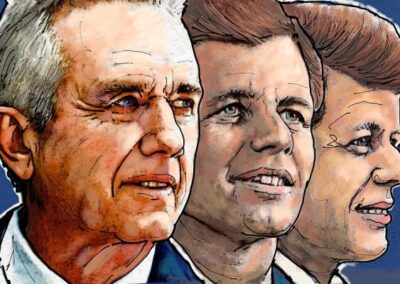I was in 7th grade. I was almost 12 years old. The principal announced President John F. Kennedy’s death over the school’s public address system. I was in math class. I can still picture exactly where I was sitting in the classroom when the announcement was made. I still remember what streets I walked down to get home that afternoon (I had taken a different direction than I usually did). This is what trauma does: it freezes time in mental images that last a lifetime. But the sense of loss didn’t fully hit me then. It grew as the years passed.
I was in high school when Robert F. Kennedy and Martin Luther King Jr. were killed. After their assassinations, a fellow student in debate class made an insensitive comment about Robert Kennedy’s death and I exploded on him. This was very uncharacteristic of me, but that’s when I realized that the grief from JFK’s death, and Martin’s, and Bobby’s all came pouring out.
One advantage of being “old” is that one has a unique understanding of the trends in recent history, because, in my case, I have lived through much of that history. American was never the same after President Kennedy’s death. For us as a society, it’s been downhill ever since. In the near-term, little changed. But over the next five years, things in the country came unglued. And the fabric of America continues to unravel to this day.
Sixty years later, I see Robert Kennedy Jr.’s election as a chance to reboot the country, to finish what his uncle and his father were unable to finish. This notion is likely folly to many, but that’s what I sense, and that’s what I hope. I’m an avid student of history, and every time I hear Robert Kennedy Jr. speak, I can hear part of John Kennedy and part of Robert Kennedy Sr. in what he says.
The country seems to be on the precipice of a fall which would lead to an irrevocable loss of cultural cohesion. This isn’t a new idea, as many have concluded this. We seem to have been staring into the abyss for some time, but we seem close to falling in. Any sitting President can’t call half the country “semi-fascists,” “insurrectionists,” “white supremacists,” the most dangerous terrorists and perpetrators of violence since the Civil War and expect that half of the country to put up with it forever. The tendency of our various political leaders to use incendiary rhetoric is coercive to our political culture and to our cohesiveness as a nation. People who strongly take exception to these characterizations are patiently putting up with the slurs because they still believe in the republic and ultimately in the integrity of our electoral system. This incendiary rhetoric is not intended to keep us together as a nation. The news media seems to love the topic of a coming civil war. I doubt that will happen. It’s more likely that states will seek a peaceful divorce. To me, that seems like a possibility. Unless things change.
One hopes and prays that the center will hold, and that reasonable people will ascend to positions of governance in next year’s election. Let us embrace that hope, because people won’t continue to put up with being demonized, while the other half of the country is gas-lit with propaganda such that the temperature of disdain ever rises.
Robert F. Kennedy Jr.’s main campaign theme is “Heal the Divide.” He never personally criticizes anyone. He doesn’t demonize anyone. He doesn’t reduce himself to name-calling, or to demagogic blustering. He is calm when he speaks about real and potential rivals. He is reasonable and compelling when he speaks of the issues that face the country.
We need someone in the White House who is going to treat every American with respect, who intently listens, and who will thereby reduce the temperature and turn polarization into cooperation. And someone who will lead us in bringing sixty years of pain and turmoil to an end.


